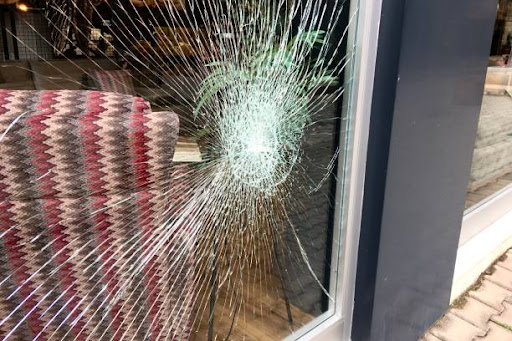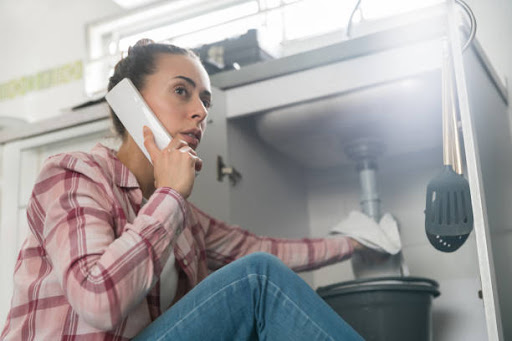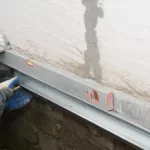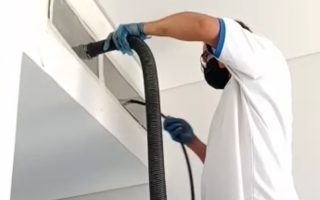When maintaining a rental property’s condition, landlords and tenants have a unique and shared responsibility. Yet, accidents can happen, and damages may occur. So, both parties must understand the consequences when a rental property sustains harm.
Are you a tenant looking for information on what happens when you damage a rental property? Or a landlord searching for legal tips to protect your rental investment? In this article, we explore the multifaceted aspects of property damage. We’ll delve into the common types of tenant property damage and what steps landlords can take to rectify and prevent such situations in the future. Whether you’re a property owner navigating maintenance or a renter concerned about your responsibilities, this guide will illuminate what unfolds when a rental property faces damage.
Table of Contents
Common Types of Rental Property Damage by Tenants
Wall and Floor Damage
Walls and floor damage are the most common sites for rental damage. However, distinguishing between normal wear and tear and damage due to neglect or malice is crucial. Scuff marks are commonplace on hardwood and linoleum floors, typically falling under wear and tear. Likewise, door handles can also leave scuff marks on your walls.
Specific damage like holes, stains, or broken tiles often occurs during moves or due to carelessness. In such scenarios, landlords can hold tenants accountable for damage and withdraw their security deposit for repairs.
Appliance and Fixture Misuse
Another typical example of rental property damage is appliance and fixture misuse. This issue is more of a problem in furnished apartments, where rentals come equipped with basic furnishings, so all renters require on moving in is their belongings.
Considering the setup, tenants may accidentally damage appliances, fixtures, or plumbing through improper use or neglect. Thus, when investing in a semi-furnished or furnished house, you must consider mishaps like these when charging rent. Rental property managers in Northern Virginia implement lease policies with discretion, allowing you to turn a profit even when you take on more considerable risks.
Neglected Maintenance
Properties can also sustain damage due to neglect. Failing to report or address minor maintenance issues can lead to more significant problems, such as water damage from leaks. A forgetful tenant leaving the faucet on or a landlord that fails to service their water sensors can cause considerable damage to the floor, ceiling, and appliances.
You can avoid unexpected issues by quickly resolving minor maintenance issues, servicing your detectors, and cautioning tenants to turn off water sources before leaving the house.
Pet-Related Damage
In properties that allow pets, scratches, scuff marks, and urine stains are more likely to be problems. Thus, tenants must take responsibility for any damages caused by their animals, including scratched floors, torn screens, or carpet stains.
Considering the increased risk of damage, tenants should be willing to pay a reasonable pet fee or increased security deposit to compensate. Enrolling pets in proper training should also be mandatory so your furry friends are well-behaved, reducing the burden of cleaning after them and paying for damages.
Broken Windows or Doors

Landlords are responsible for securing window and door frames, and tenants should cross-check during the move-in inspection. Hinges, locks, catches, and sliders should all be in good condition. After which, renters are responsible for maintaining the integrity during their tenancy. Who repairs broken windows and doors depends on your rental agreement.
Paint and Wall Damage
Besides scuff marks on the wall, paint can also result in wall damage. Painting without permission or using the wrong type of paint can result in costly repairs. Tenants may want to repaint their home to give it a fresh look and personalize their space, but it should always be within the confines of their lease.
Many landlords implement policies about painting to maintain the uniformity of their rentals and prevent wall damage from low-quality products. Thus, tenants who violate their lease are liable for damages.
Legal Actions Landlords Can Take to Protect Their Rental Investment
Lease Agreement
Lease agreements should include clearly defined clauses outlining tenant responsibilities for property maintenance and damage repair. Signing a lease is essential during the move-in process, and both parties should review the agreement before committing.
Communication
Open and honest communication with the tenant is crucial. Landlords should provide written notice of damages and repair estimates, allowing tenants to address the issue or negotiate an amicable resolution.
Security Deposit Deductions
Security deposits are a safety cushion landlords can legally deduct from when they need to pay for tenant damage. While this solution provides a convenient way for property owners to raise money quickly for repairs, they still need to follow legal procedures and document damages properly. Enforcing lease policies on rentals that prevent tenants from inquiring or reclaiming the balance of their security deposit can lead to fines.
Small Claims Court
If repair costs exceed the security deposit, landlords can file a claim in small claims court to recover the remaining expenses. This solution is viable if both parties cannot agree after open communication.
Insurance Claims
Landlords can file an insurance claim if a rental property insurance policy covers the property. This solution can help offset repair or replacement costs. Renters could also tap into their insurance if they have tenants’ insurance.
Conclusion
What happens when you damage a rental property? This article sheds light on this topic by identifying the common types of rental property damage and highlighting the legal actions landlords can take.
By recognizing the potential challenges that property damage can pose, including wall and floor damage, appliance and fixture misuse, and neglected maintenance, landlords and tenants can proactively address them. Through security deposit deductions, insurance claims, and open communication, both parties can foster a harmonious rental experience. Hiring a property manager can help you navigate the complexities of property damage with greater ease, promoting the longevity and well-being of the rental property.










